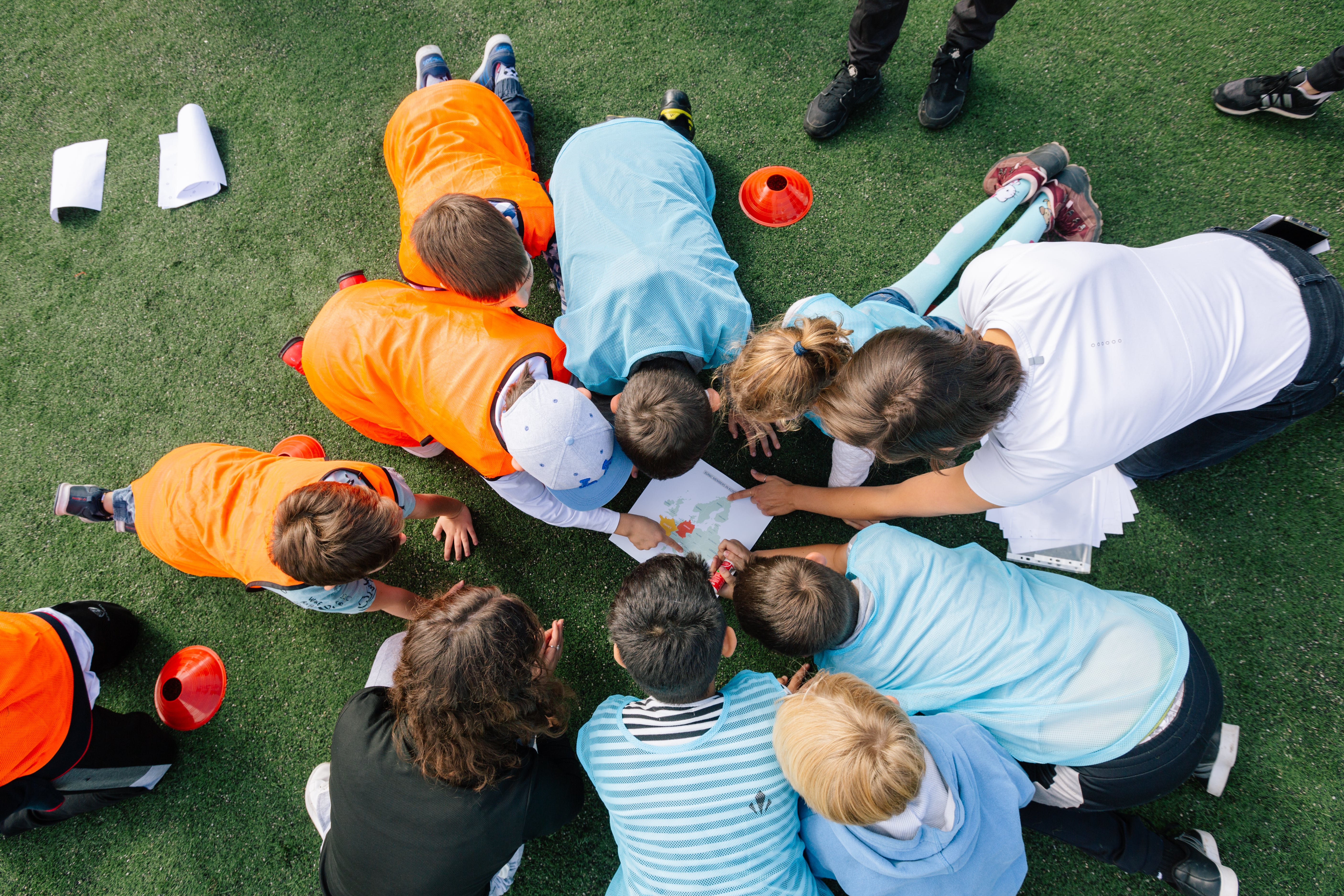PLAY International: the sports laboratory for education
Unlocking the social impact of sport is the mission that PLAY International set itself over 22 years ago. We went to meet Arnaud Mourot, its founder president, to gain some perspective on how to transform sport into a tool for education.

Photo credit: Rilindbeqa – European day of languages
The Playdagogie, an active pedagogy
"There are two schools of thought in sport. Those who think that sport is steeped in values. And those who, like us, believe that sport has no intrinsic value. In reality, sport is a medium… it is a way of entering into a relationship, a dialogue, an exchange. What can be steeped in values is the educational intention that we can put behind it," according to Arnaud Mourot. The hallmark of PLAY International, "Playdagogy", was created in Bolivia, while the association was working on HIV prevention. Thanks to a game on this subject, the information retained was almost ten times greater than with a more traditional approach.The association therefore reflected, structured and formalized this active pedagogy to allow it to be adapted to many subjects.
"We have not yet ventured into the field of quantum physics via Playdagogy," jokes Arnaud. "But we know how to break down problems into smaller problems and then transcribe them into sequences of play, movements, etc. In the end, we are able to create an appetite for learning and a very different and very impactful way of learning."
The association first naturally turned to fundamental notions of living together, respect for the rules, before opening up to other subjects such as disability, eating well, issues of gender and inclusion, refugees, and even learning maths.
"What we unlock is the desire, the desire to learn," explains Arnaud Mourot. "School was designed for a large majority of students, but there are still a number of people for whom learning, as it is structured today, is not suitable. So we create pleasure, movement, and they find themselves learning without even realizing it. In the end, we get around a certain number of biases to enable everyone to reappropriate fundamental subjects in their own way."
We are able to create an appetite for learning and a very different and very impactful way of learning.
Arnaud Mourot, founder president of Play International
What sport can bring to society
PLAY International quickly assumed the role of a sports laboratory for education. The association goes out into the field to find out what impact sport could have in different contexts. This was already the case in 1999, in Kosovo, by working on issues of inter-ethnic reconciliation and social inclusion of the most vulnerable young people. Or in Afghanistan in 2003 when, after the fall of the Taliban, it was necessary to recreate the fundamentals of women's sport.
"It is not just an educational laboratory," clarifies Arnaud. "But how sport can help overcome trauma, tension, and ultimately overcome situations for which young people were not prepared."
When it was launched, the association had no idea how much the educational dimension of sport could contribute to society. A field which, according to Arnaud, still remains largely unexplored. "One of the big questions for us today is how we can contribute to the creation of a larger, more solid, multi-actor ecosystem, in which there would indeed be associations, NGOs, but also companies, public authorities, etc. We must create alliances so that sport can help us with the major societal issues that we all know: health, education, and even climate change! It is not by playing sport that we will solve the problems of climate change, but it is perhaps by playing sport that we will understand what climate and climate change are. There is a huge blank page in front of us."
But to achieve this ambitious goal, Arnaud Mourot considers that it is necessary to deconstruct the collective imagery around sport, very oriented towards competition, performance and medals, to reconstitute the image of sport around what it can positively bring to society."It is a real cultural issue," says the association's founder. "But it is up to us to demonstrate it, with supporting figures."
An active company is a company in better shape, and this can also avoid many costs to the community. We are thinking in particular of the issues of a sedentary lifestyle or being overweight that are becoming a concern. "There are really phenomenal issues that sport can help solve… and we are only at the beginning of this adventure."
Discover other charities put in the spotlight as part of as part of Societe Generale's sporting and solidarity challenge #MoveForYouth: Plan International, taking action to support girls’ rights
